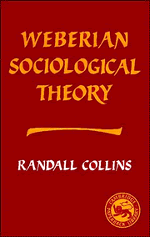11 - Weber's theory of the family
Published online by Cambridge University Press: 01 June 2011
Summary
Max Weber is not usually thought of as a theorist of the family. Nevertheless, the topic is mentioned a good deal both in his comparative studies of the world religions and in his systematic treatments of capitalism. His main interest is in the family as an important obstacle to the development of rationalized capitalism. But he also deals with the topic in debating with Marxian theory, and in this connection he makes many penetrating observations on the subject of sex. From all of this together it is possible to extract a theory of the social determinants of family structure. It is a theory, I would contend, as yet unmatched in its historical breadth, as well as in its hardboiled realism and its emphasis on political – and even geopolitical – determining conditions.
Family obstacles to capitalism
“The great achievement of the ethical religions,” Weber declares (1916/1951:237), “above all of the ethical and asceticist sects of Protestantism, was to shatter the fetters of the sib. These religions established the superior community of faith and a common ethical way of life in opposition to the community of blood, even to a large extent in opposition to the family.” In his comparative studies of China and of India, he emphasizes that the family structure, especially the corporate kin group (“sib”), throttled capitalist development.
- Type
- Chapter
- Information
- Weberian Sociological Theory , pp. 267 - 296Publisher: Cambridge University PressPrint publication year: 1986
- 1
- Cited by

